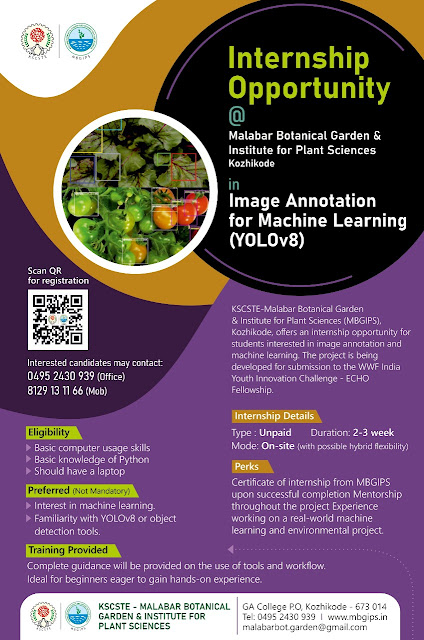KENDRIYA
VIDYALAYA OCF, CHANDIGARH
PROMOTION OF
READING HABIT AMONG STUDENTS
Reading plays a crucial role in
the academic and personal development of students. Promoting a reading habit
among students is essential for their overall growth and development. Despite
its importance, many students today are not as engaged in reading as they
should be. Following are some benefits of reading habit among students, current
challenges, and actionable recommendations.
Benefits of Reading
1. Academic Performance: Students who have developed
reading habits are tend to perform better in academic performance.
2. Stress Reduction: Reading books can be a relaxing,
which reduces stress and increases mental well-being.
3. Cultural
Awareness: Exposure to books of different places and authors increases
students' understanding of different cultures and societies and peoples.
4. Cognitive
Development: Reading of books increases vocabulary, language skill, comprehension,
and critical thinking skills.
5. Emotional
Intelligence: Reading of fiction and biography of famous personality can
improve emotional intelligence of students.
Challenges: -
1.
Digital Distractions:
The easy access of internet, social media and gadgets has reduced the interest
of students of reading books.
2.
Lack of Interest: Many students have lack
of interest in reading books. They don’t take reading as pleasurable activity.
3.
Reading Difficulties: Students with
language barriers and with learning disabilities may struggle with reading.
Promoting reading habit is
beneficial in academic success and personal growth of the students. These are
some Library activities which are being conducted to encourage reading habits
among Students:
1. Book
Fairs: Book fairs in the school premises may be arranged so the students
can be exposed the wide range of books of different authors. It encourages
students to explore different types of literature.
2. Reading
Clubs: Reading club and book clubs are formed where students can discuss
about the books of their interests, they can share their thoughts, and may
recommend books to each other.
3. Use
of Technology: Libraries should provide the students an online platform,
like Audiobooks, provision of E_Books, availability of E_Resources in the
library, use of educational apps, to make reading more interactive and
accessible to students. Use of technology and E_Resources can make reading more
engaging for tech-savvy students.
4. Providing
of Diverse Reading Materials: Libraries should provide a wide range of
books and reading materials which can fulfill the different interests and
reading levels of the students to keep them engaged.
5. Incorporation
of Reading into Curriculum: Reading activities should be incorporated into
various subjects. Teachers should be encouraged to assign reading related tasks
in the topic being taught.
6. Book
Reviews: Students should be told to write book review of the book which
they have read. By writing book Review for the books the students have read can
be encouraging the other students to read the same books.
7. Bio
Sketch Writing: Students should be given the biographies of eminent
personalities and after reading they should write brief note on the famous
personalities.
8. Book
Talk and Author Visit: Invite authors to speak at the school during
assembly or any other suitable time where students can interact with them. Students
can be inspired by hearing directly from authors and this can make reading more
exciting.
By conducting these activities libraries can help inculcate
lifelong love of reading.
·
Create a Reading Challenge: Organize a reading
challenge where students set individual reading goals and track their progress.
Offer rewards for achieving milestones to incentivize reading.
·
Set Aside Dedicated Reading Time: Allocate
specific time during the school day for silent reading or reading-related
activities. This establishes a routine and emphasizes the value of taking time
for reading regularly.
·
Parental Involvement: Encourage parents to read
with their children at home and support their reading habits. Organize family
reading nights or workshops to emphasize the importance of reading as a shared
activity.
·
Celebrate Reading Achievements: Recognize and
celebrate students' reading accomplishments through awards, certificates, or
public acknowledgments. Positive reinforcement can motivate students to
continue reading.
·
Make Reading Fun: Choose engaging and
age-appropriate books, organize reading-related games or contests, and
incorporate creative activities like book-themed crafts or performances to make
reading a fun and enjoyable experience for students.
·
By implementing these ideas and strategies,
schools can play a significant role in nurturing a lifelong love for reading
among students.
·
Promoting a reading habit among students is key
to academic success and personal growth. Here are some ideas and strategies to
encourage reading:
·
Create a Reading Culture: Establish reading
corners in classrooms and libraries, organize book clubs, and celebrate reading
achievements to foster a culture of reading in schools.
·
Set Reading Goals: Encourage students to set
personal reading goals and track their progress. This can motivate them to read
regularly and challenge themselves.
·
Reading Challenges: Organize reading challenges
or competitions to spark students' interest in reading. This could include
themes like mystery novels, biographies, or exploring different genres.
·
Author Visits and Book Fairs: Invite authors to
speak at the school or organize book fairs to expose students to new books and
inspire them to read more.
·
Incorporate Technology: Utilize audiobooks,
e-books, and reading apps to accommodate different learning styles and make
reading more accessible to students.
·
Reading Rewards: Implement a reward system for
reaching reading milestones, such as certificates, badges, or small prizes, to
incentivize reading.
·
Parental Involvement: Engage parents in
promoting reading habits at home by providing reading recommendations, hosting
family reading nights, or creating a parent-child book club.
·
Integrate Reading Across Subjects: Encourage
teachers to incorporate reading activities into various subjects to show
students the importance of reading beyond language arts.
·
Provide Reading Support: Offer reading support
services for struggling readers, such as reading intervention programs or peer
tutoring, to ensure that all students have the opportunity to develop their
reading skills.
·
By implementing these strategies, schools can
help instill a lifelong love of reading in students and foster a community of
enthusiastic readers.




